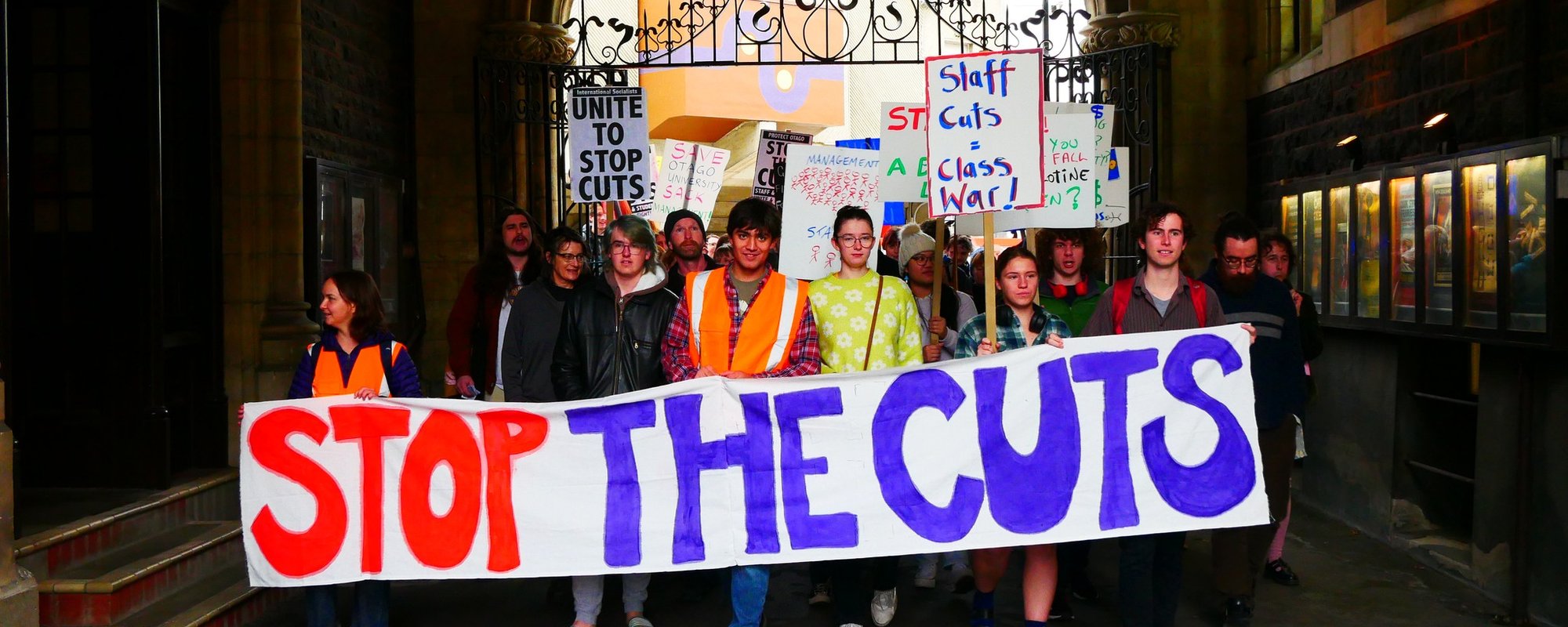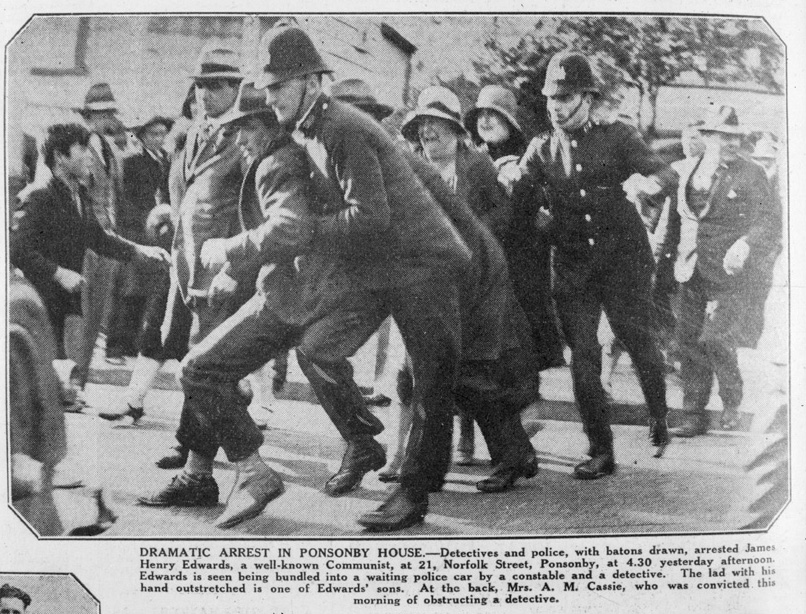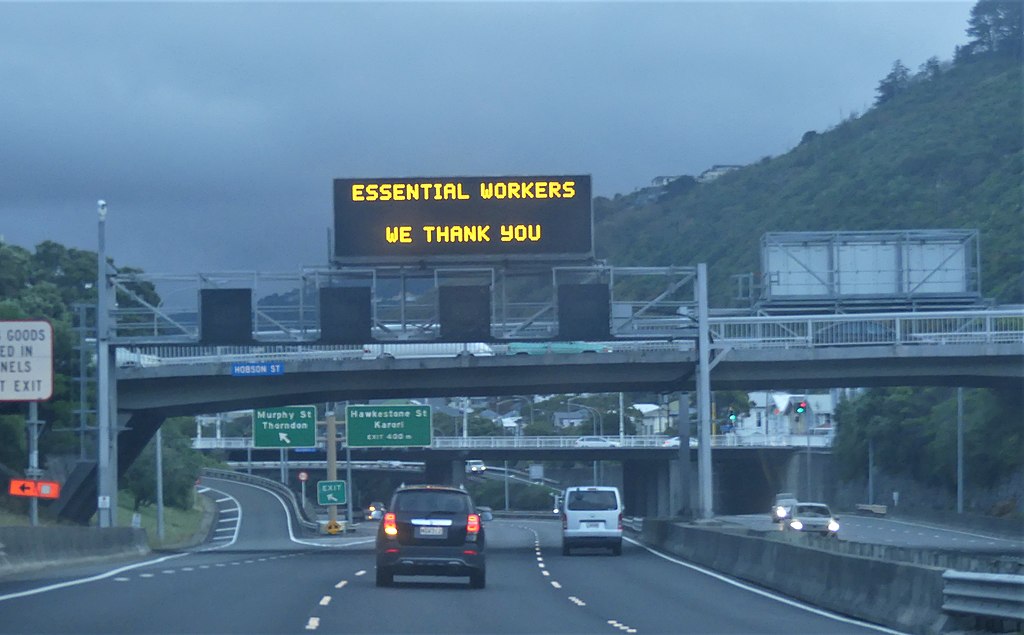The reactionary protest at parliament has now dragged on for several weeks. As the various antisocial demands of the protesters are amplified by the media, the quiet opposition of thousands of people doggedly continuing to follow public health measures can easily be lost. The actions that people are taking every day— such as scanning in, wearing masks, getting vaccinated, cancelling events, getting tested and self-isolating— are profoundly collective in their aims and outcomes, but they do not always feel this way. It is not always easy to recognise these individual actions as acts of solidarity when the virus keeps us socially distanced and distorted narratives of “division” dominate the news cycle. That’s why it is time for collective action against the protesters, and the beginnings of this organising is starting to take shape.
Most reporting on the protest has not been positive. Coverage has largely focused on the protest as spectacle, with attention given to the more extreme or ridiculous elements. Attention has been given (rightly) to the far right and bigoted elements of the protest and to the grottier displays of harassment, abuse and intimidation that are being reported. The degree to which the protest can be described as “peaceful” has been a large focus, leading to debates about the “right to protest” and whether it can be taken “too far.” What can get lost in this analysis, though, is the fact that the broad aims of the protest can and should be opposed in their own right by anyone who supports a collective response to the virus. The protest poses a real threat to this response on multiple levels. It threatens it on a physical level, disrupting people’s day-to-day activity and potentially spreading disease; it threatens it on a social level, weakening people’s confidence and spreading misinformation; and it threatens it on a political level, in that if their broad demands were met it would represent a weakening in the public health response to the pandemic.
The pandemic has illustrated clearly how connected we are to each other, and made it painfully clear that there can be no individual approach when it comes to infectious disease. Evidence suggests that most New Zealanders have been following the health guidelines promoted by the government’s “unite against Covid-19” campaign in good faith. Stats NZ data shows that 91% of the eligible population has had their first and second dose of the vaccine and 58% have had a booster. In the past week 201,940 people were tested for Covid-19. On the 24th of this Month, there were 1,975,921 scans on the Covid-Tracer app. In December, at the peak of the holiday season, 3,962,764 scans were registered in one day. Data is not available on mask wearing, but evidence that this practice is widespread is not hard to come by. A protester at parliament might attribute these efforts to mindless compliance. We would argue that these actions demonstrate not a blind faith in Government or in “modern medicine” but a willingness to take on personal risk, inconvenience and hardship for a collective good, along with hope that the measures being put forth by the Government and its health advisors will prove to be effective ways of carrying out this collective action.
This hope is not ill-founded. The government’s actions up to this point have, by and large, facilitated and supported a collective response. A general message has been sent (though not always as strongly as it should be) that public health and the preservation of workers’ lives is more important than the maintenance of profit and the continuing of business as usual. New Zealand has one of the lowest rates of infection and death in the world (14.4K per million and 11.3 per million, respectively). Globally we are seeing data that bears out the claim that vaccination decreases the rate of severe illness, hospitalisation and death. This is all reasonable grounds for hope that a collective approach that includes mass vaccination among other public health measures can minimise the suffering and death caused by the virus.
This hope doesn’t exclude the possibility of criticism. At every point there will be valid criticisms and questions to be raised about the government’s handling of the situation. This is not the article to go into those concerns, but socialists can support any critique or demand that genuinely has the interest of workers at heart; that is aimed at limiting the suffering caused by the virus and ensuring equitable support for those whose lives or livelihoods have been disrupted by the crisis. As the Government changes the official approach in coming months it will be particularly important that we pay attention and voice criticisms of policies that don’t adequately (and equitably) protect people from the virus and minimise the suffering of workers and students whose lives are disrupted. The broad demands coming out of the protest, as well as they can be made out, do not represent this kind of criticism.
What is frustrating for the people who support the continuation or extension of public health measures against the virus is that it is hard to counter the protesters as their occupation continues to disrupt lives and receive endless coverage in the media. Public demonstrations of any kind are fraught in the time of Covid, and physically confronting a gathering that explicitly opposes various health precautions poses particular risks. While huge numbers of people are implicitly countering the protesters by continuing to follow the health measures, this quiet opposition is unlikely to garner much attention from the media. Collective opposition is beginning to take shape, though. Hashtags such as #gohome and #endtheprotest are emerging as people take to social media to share their frustrations. A community group called Aotearoa Stronger Together has been formed to coordinate actions against the protest.








